Plastic is everywhere. Plastic is the most universal material that we use everyday. Plastic is cheap. Plastic is paradoxical: its’ popularity growing exponentially, but most of it is produced from fossil fuels that we are running out of. Also, its’ popularity brings us to the vast of plastic trash. Plastic waste can be recycled, but China stopped buying foreign waste from 2018 and western world is already trapped in its’ recycled waste. The major part of plastic is leaked and goes to our oceans. If the number will keep growing as they are so far by 2050 we will have more plastic than fish in the oceans. Can we change it? Can we still use plastic’s best qualities but avoid waste and dependence on fossil fuels? Can we reimagine the plastic cycle?

Barcelona, our city, recycles only 38% (approx. average of Europe) of all its waste and plastic waste is only 9% of it. Since Barcelona is capable to recycle way bigger amounts, municipality made a survey to detect the main reasons of not recycling. And one of the main reasons appeared to be laziness, lack of awareness and trust.
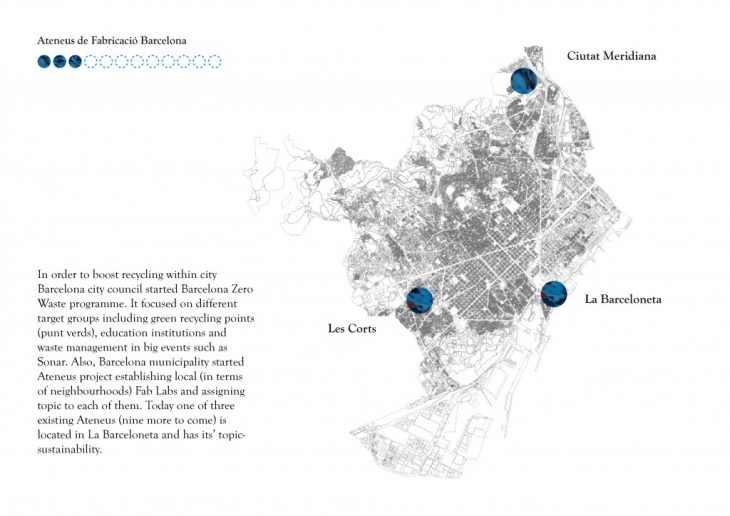
La Barceloneta is a neighbourhood in Barcelona, former fisherman village. Today it is one of the hottest tourists spots in city because of its’ beach and Mediterranean cuisine. Barceloneta, as many central Barcelona’s neighbours is surviving tourists-locals conflict. Despite that, tourists are part of local ecosystem and boosting local businesses they influence local waste cycle as well. To identify tourists and local businesses impact we made surveys on site, focusing on tourists and major food providers in La Barceloneta.
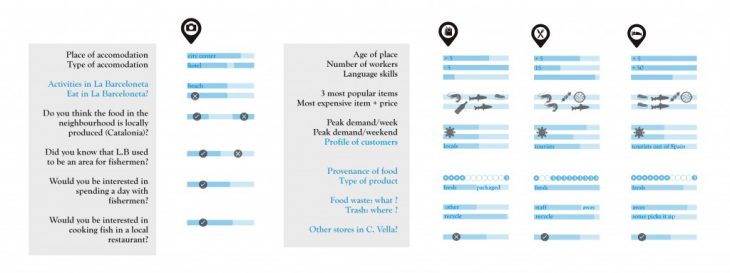 Apparently the main plastic use is in packaging. Packaging covers various types of objects, even though the biggest among of packaging is used for food. Being used for food also means that this type of plastic is serving the shortest time in comparison with plastics in other uses.
Apparently the main plastic use is in packaging. Packaging covers various types of objects, even though the biggest among of packaging is used for food. Being used for food also means that this type of plastic is serving the shortest time in comparison with plastics in other uses.
If plastic use is growing exponentially, plastic waste is following up. Can we change it? Can we reshape the plastic waste destination and put it back to the cycle? Can we take plastic waste from packaging category, which is the main plastic use and reuse it in second category for households and other objects?
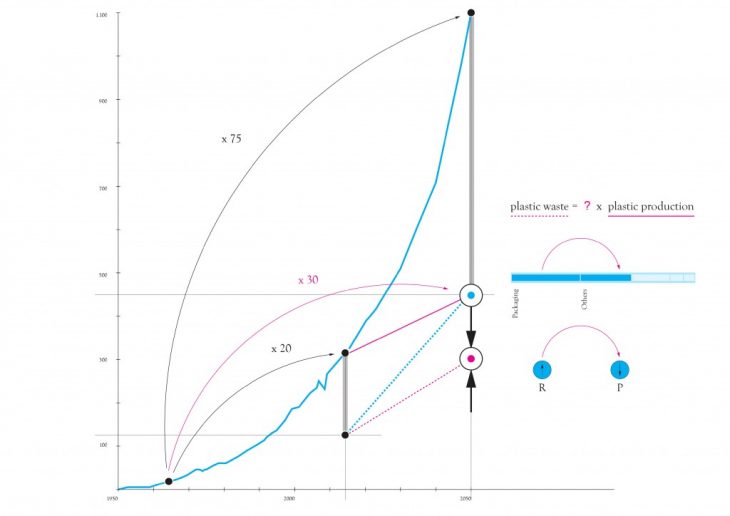
Today the cycle of plastic is based on global scale and relies on fossil fuels. How can we shift from this dependance and avoid plastic lost? Can waste be the resource? What if we improve the plastic cycle by reusing most of the waste? By taking waste as a resource we can reduce dependence on fossil fuels and reduce ocean and land pollution. What if we create pop-up station, that is dedicated to build the trust between people and recycling, manifests the simplicity of recycling together with citizens and spins the wheel of plastic recycling?
Today in order to recycle we go to waste collectors. What if our laziness can be solved by platform, that comes to us? The physical platform, pop-up station, which shows up in the events, on the beach, especially at places, where we produce big amounts of plastic waste and don’t bother to recycle them?
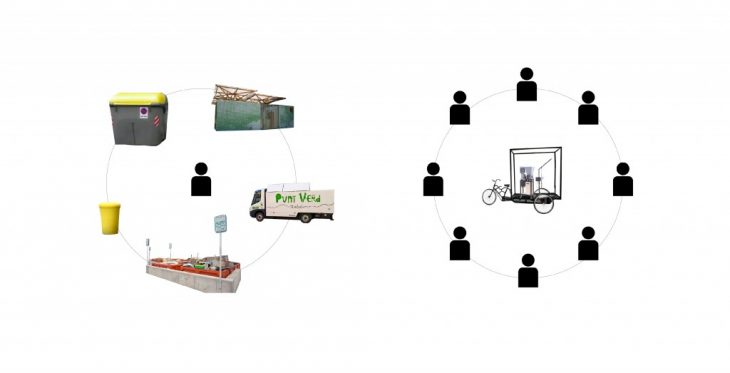
BiRecycle is pop-up station, containing basic plastic recycling machines that are based on PreciousPlastic open source content. BiRecycle is powered by pedalling, can work in any place and with different plastics. BiRecycle is dedicated to raise awareness, play, show simplicity of plastic cycle, create a public space around itself, become an event.
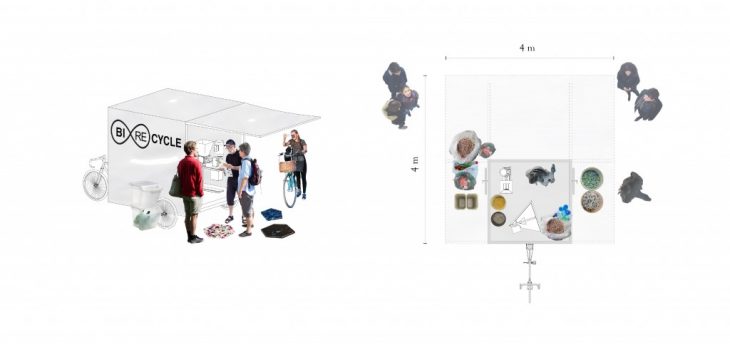
The development of BiRecycle contains of three major stages: FabLab (melting up), neighbourhood (let’s play plastic) and city scale (our plastic track). 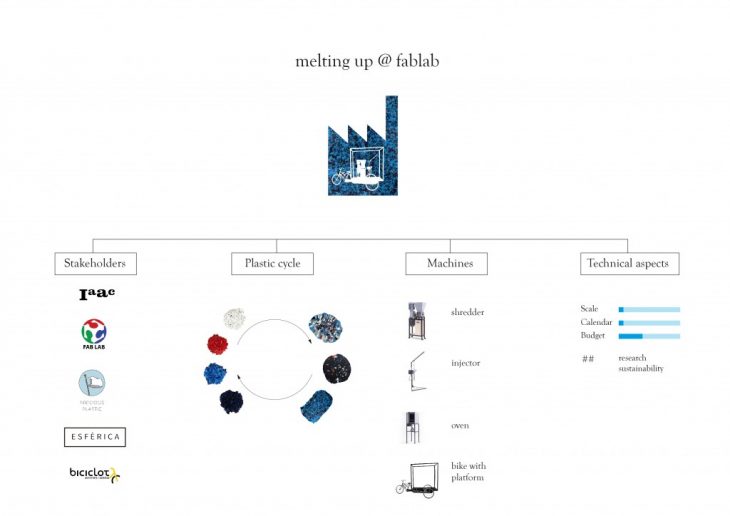
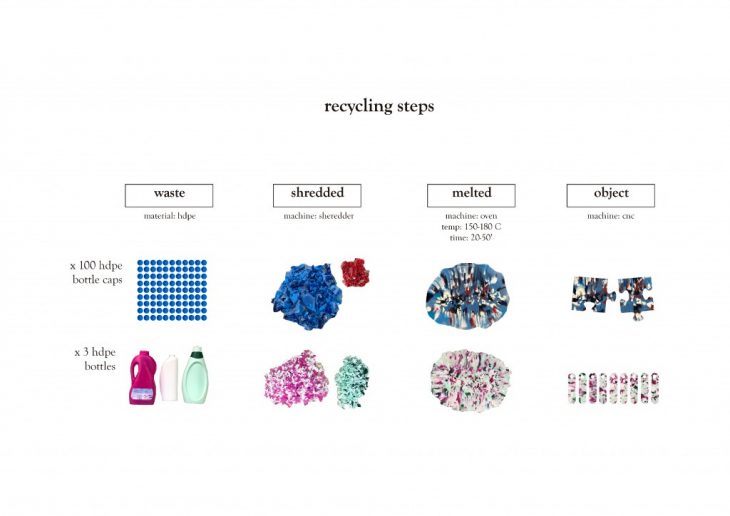
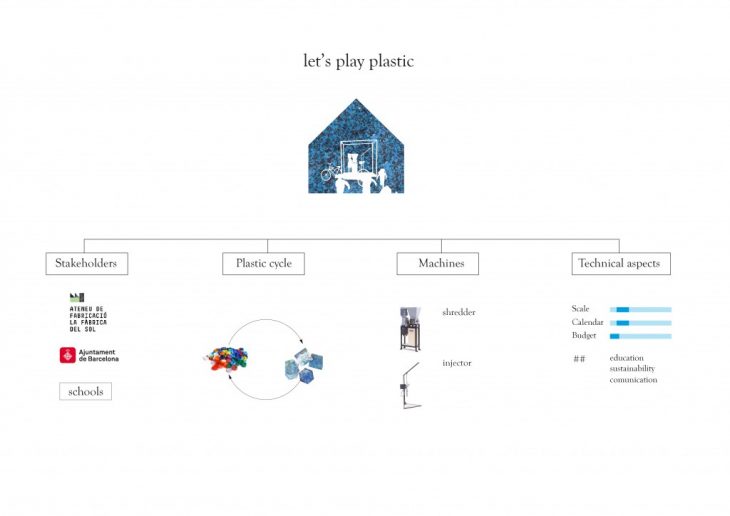
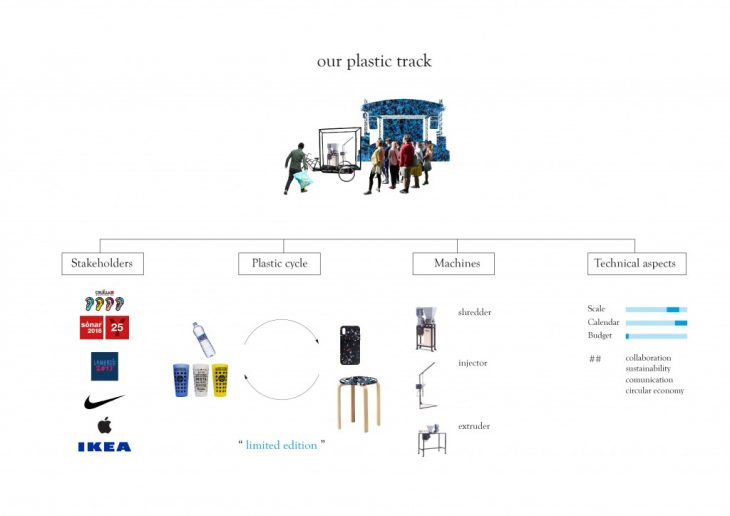
The platform is open to collaborate with various public and private sectors and works as a plug-in in different scales, including both- waste producers and potential users. 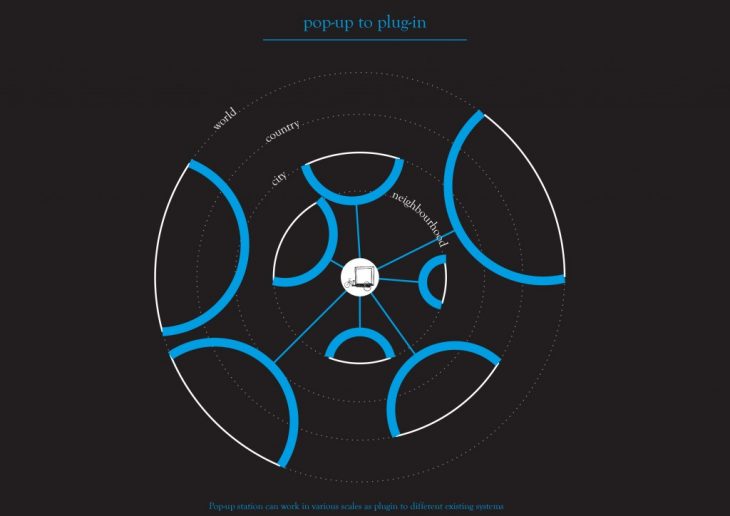
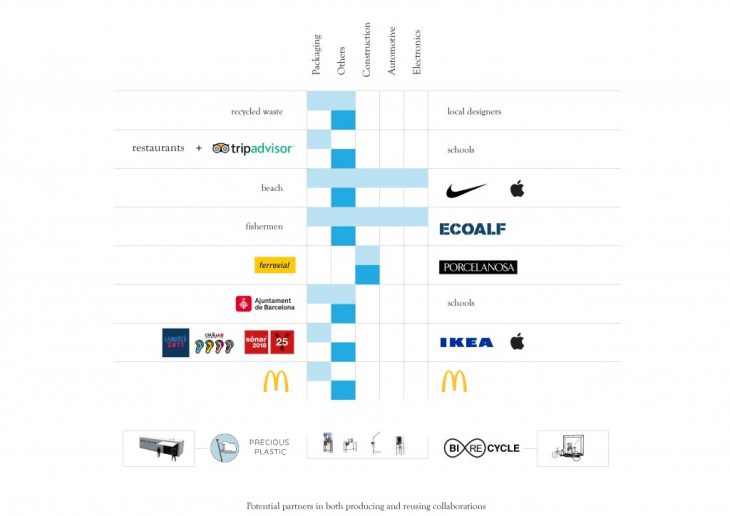
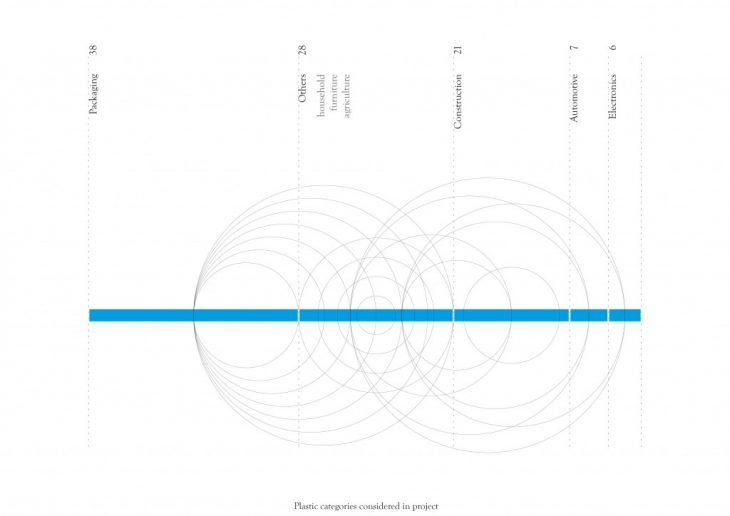
Project development:
</p>
Plastic in La Barceloneta is a project of IAAC, Institute for Advanced Architecture of Catalonia, developed at MaCT (Master in City & Technology), 2017-18 by:
Students: Alba Alsina, Saule Gabriele Petraityte
Faculty: Tomas Diez, Mathilde Marengo, Chiara Dallolio